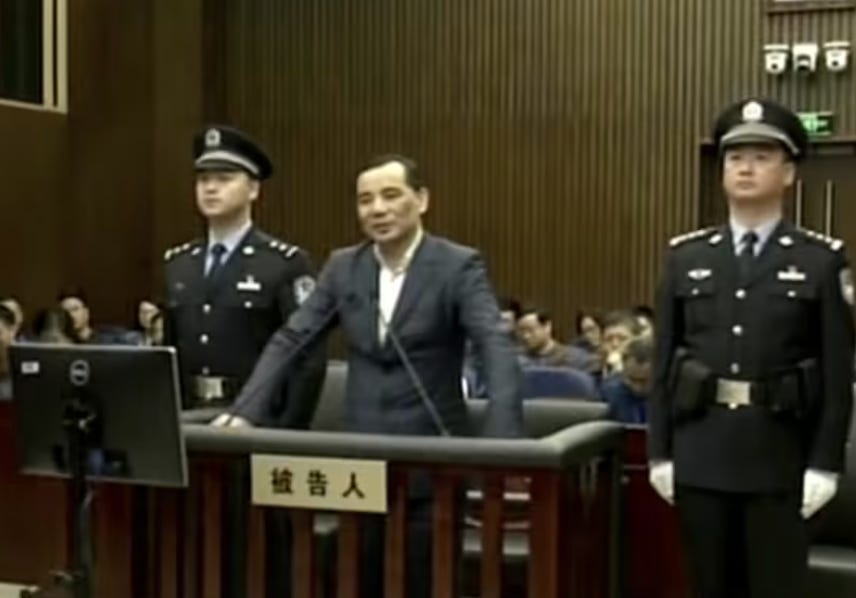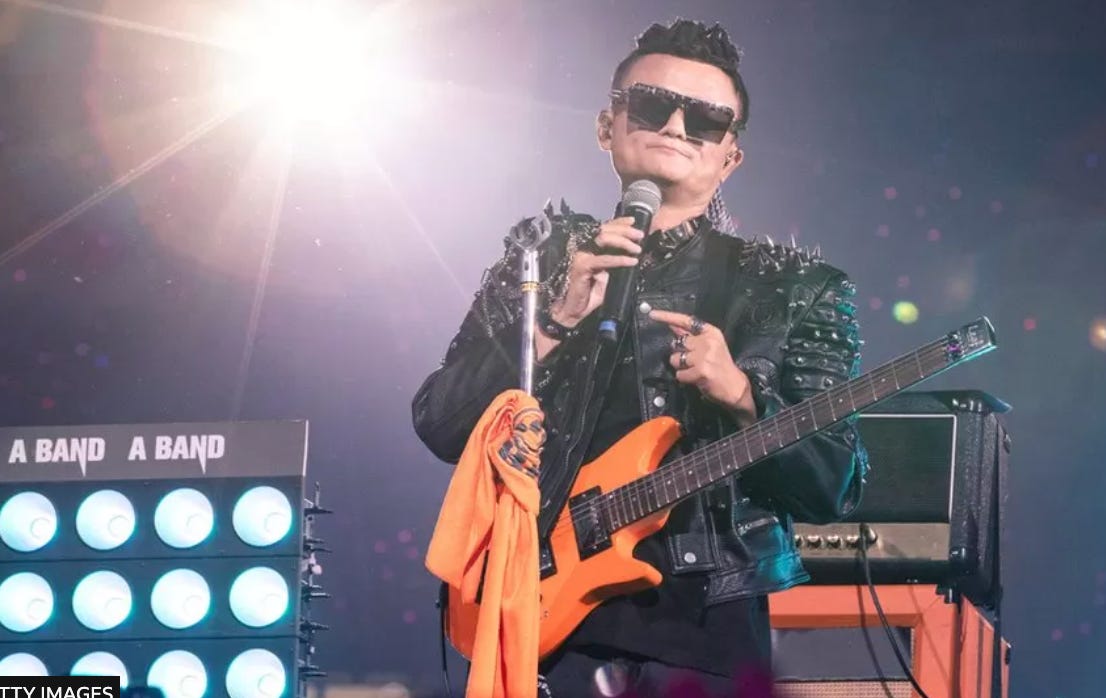What’s up with China and President-for-life Xi Jinping? Wealthy Chinese tycoons suddenly disappear, then are separated from their empires without explanation. Some are kidnapped, some end up in jail, and some flee then reappear. It’s not unusual in autocracies like China for individuals to fall out of favor and simply vanish. But what appears to be underway is a structural shift, a crackdown that marks a transition from Deng Xiaoping’s “capitalism with Chinese characteristics” toward Maoist state control, particularly in key sectors such as technology, science, and finance. The most recent example involves China’s foremost technology rainmaker, Bao Fan, who was head of Chinese Renaissance and disappeared in early February. His company’s stock sagged a press release two weeks later stated that "the board has become aware that Mr. Bao is currently cooperating in an investigation being carried out by certain authorities in the People's Republic of China.”
Undermining capitalism is odd considering that free enterprise has delivered unprecedented prosperity and opportunity to China’s 1.4 billion people. No other country in history has lifted a gigantic population out of poverty in just two generations and the country’s meteoric rise began in 1978 after its late President, Deng Xiaoping, embraced capitalism and opened up the economy. Growth rates soared to 10 percent year annually and a middle class larger than the combined populations of North America and the European Union was created. As Deng said in a rare TV interview in 1986: “Getting rich is glorious”. Now, more than three decades later, Xi apparently disagrees.
China hasn’t been a communist country for generations. Polls consistently have shown that two-thirds of Chinese agree that the free market system and economy was the best system in the world. They also embraced education, entrepreneurship, and innovation to get ahead, and the state supported training, infrastructure, and capital. All combined to accelerate growth and create a booming economy with an army of talented, ambitious entrepreneurs capable of building world-class businesses and personal fortunes.
But beginning in 2015, Xi began tightening his grip over governments, state-owned enterprises, and also the country’s tycoons involved in strategically important sectors such as finance and technology. A pattern emerged: They would go missing, be investigated for alleged offenses, and finally their life’s work would be altered and sometimes nationalized without compensation. Some of the richest men in China have received this treatment. The first example was Guo Guangchang – known as the “Warren Buffet of China” -- who went missing for a few days, was investigated, and shares in his Hong Kong subsidiary were suspended. He returned to Fosun International and is a major philanthropist.
In 2017, the two biggest players in China’s finance industry were removed and their departures allowed the wholesale takeover of banking by Beijing. Insurance and finance tycoon Xiao Jianhua, owner of Tomorrow Group, was taken by authorities that year from his Four Seasons Hotel suite in Hong Kong. Also an investment banker and advisor to the Chinese Communist Party elite, he was held under house arrest and convicted of “financial offenses” in 2022. The next target, that same year, was insurance-financial high flyer Wu Xiaohui, chair of the gigantic Anbang Insurance Group. He had created an enormous enterprise, embarking on a high-profile buying spree around the world and famously paying $2 billion for the Waldorf Astoria Hotel in New York City. In 2018, he pleaded guilty to fraud and is in jail.
Both conglomerates were privately-owned and the government — accusing then convicting owners of wrongdoing — essentially nationalized their enterprises without paying compensation. The government reaped a windfall, but such unfriendly takeovers has hurt the country’s reputation. It’s now obvious to future investors, domestic or foreign, that the People’s Republic of China does not consider private property rights to be inviolate.
More delicately handled was Beijing’s attack in 2020 on the personable, and globally popular, entrepreneur Jack Ma, founder of e-commerce giant Alibaba. He disappeared that year after making public comments criticizing China’s market regulators in the lead-up to a stock offering of his digital payments firm, Ant Financial. The $34-billion public stock offering, if successful, would have made Ma the richest man in China but was halted by authorities at its 11th hour. The company was eventually forced by regulators to restructure, and Ma did not resurfaced publicly until he showed up in 2022 in Japan. In 2023, he agreed to give up control of Ant Group and currently owns only 5 percent of Alibaba and lives outside China.
Both Jack Ma and Bao Fan (whose whereabouts still remain unknown) were leaders in China’s tech sector as well as in its venture capital universe. They were the dominant players in tech start-ups investments, and their departures now leaves available only state-owned entities as venture capital investors. The exit of the two profoundly establishes Xi’s preference for state control rather than private ownership. “Jack Ma's departure from Ant Financial, a company he founded, shows the determination of the Chinese leadership to reduce the influence of large private investors,” said Andrew Collier, managing director of Orient Capital Research in a newspaper interview. “This trend will continue the erosion of the most productive parts of the Chinese economy.”
There has also been a political crackdown among businessmen who speak out. Ma paid a price for his candid comments but, also in 2020, another billionaire named Ren Zhiqiang, lost his real estate empire after criticizing President Xi over his Covid lockdown policies. He was investigated, then sentenced to jail on charges of corruption, his incarceration serving as a warning to other entrepreneurs or investors who believe they can wade into politics.
Beijing is also taking “golden shares” or small stakes in certain private companies. These holdings are sometimes as small as one percent but may also include board seats, voting power, and vetos over business decisions. Most targeted companies are innovators or job creators and this state control constitutes another form of “nationalization” without compensation.
In the world of business, investors know that governments have a right to devise the economic model they believe is best for their nation. They also have a right to police and sculpt their private sector in whatever way they wish as well as to change course mid-stream. Unfortunately, Xi’s campaign against important billionaires and tech companies in recent years bodes badly for the country in future. As a former member of China’s elite said recently “nobody in their right mind will come into China now”.






No comment other than Xi has started the demise of China's strength -its people- by taking incentive to 'do well' away. I am happy to see this - I feel no sympathy for the current Chinese regime - they'll find out that 'the people' will not take this gov't control. I wish Russians were as strong as the Chinese resistance
It took two decades to bring China from poverty into the middle class (at the expense of gullible/naive Western politicians and businessmen), but with all the looming problems China now faces (energy and food supplies, unsustainable debt, aging population and loss of foreign investment in manufacturing, to name but a few), how long will it take Xi to push the country - or what will be left of it - back into the poverty that always accompanies full-on communism?